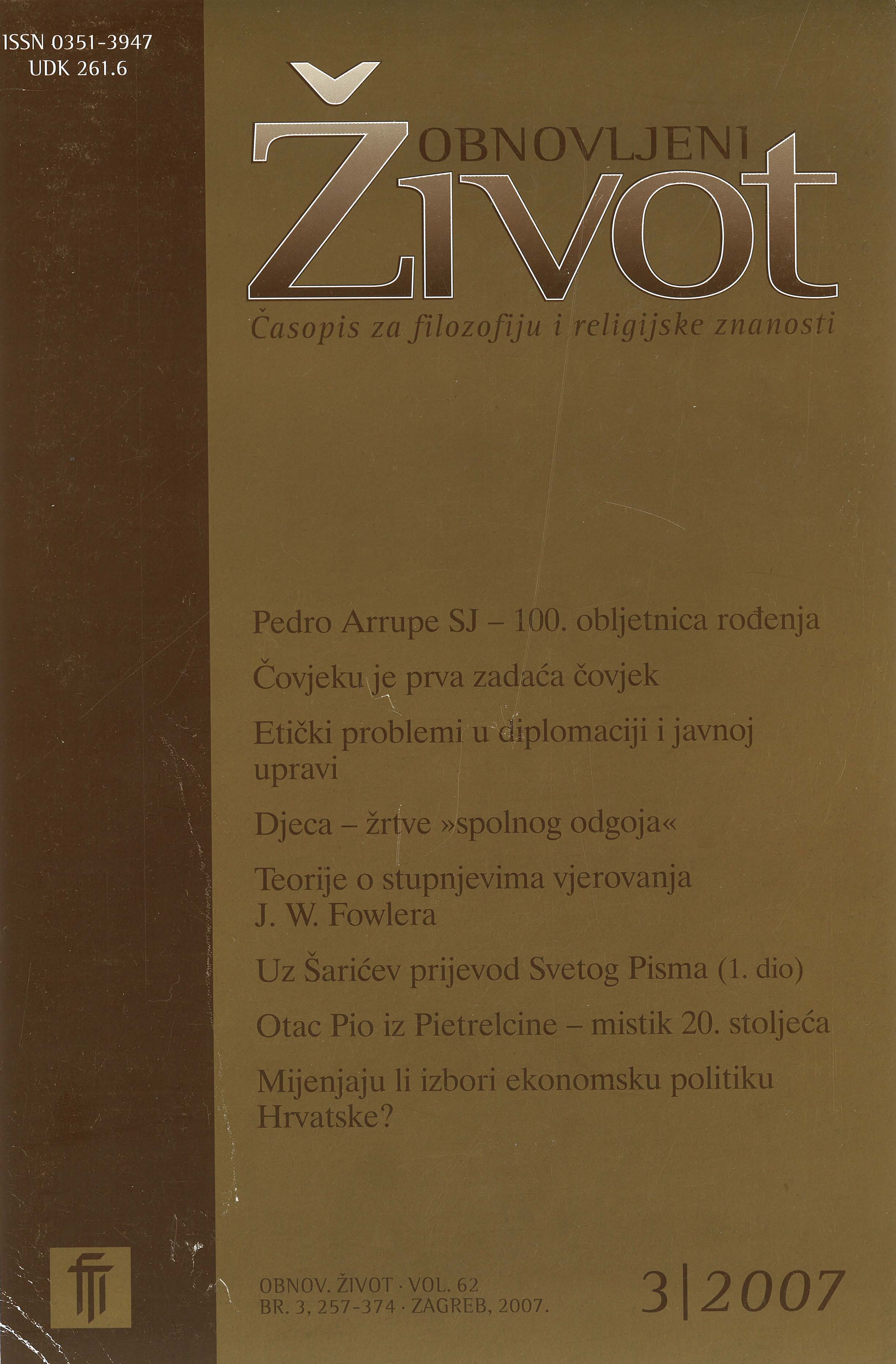Influences upon Amartye Kumar Sen's Concept of the Theory of Social Choice
Abstract
In the contemporary world, pervaded by an ambivalent globalization process, we note that a need has arisen for a code of ethics in the financial, political and in the social spheres in general. In this context the theory of social choice of Amartye Kumar Sen, the Indian economist, philosopher and winner of the Nobel prize for his personal contribution in the field of economy, represents an important factor in the realization of social goals and also plays a key role in the formation of a sound sociopolitical order. With personal preferences in mind and by utilizing a broad data base, Sen complements his theory with ideas on justice and freedom. Thus he creates a very interesting model which paves the way for a wholesome development of society. Finally, Sen's thought comes close to Christian social ethics and the social teachings of the Church, but also to some Hindu as well as Buddhist tenets. The author of this article supplies basic biographical data on Amartye Kumar Sen and introduces his most renowned works. Also, he explains the influence of Condorceta, Smith and Tagore who, in his opinion, played a crucial role in the formation Sen's thought.
Downloads
Published
Issue
Section
License
Jednom prihvaćeni članak obvezuje autora da ga ne smije objaviti drugdje bez dozvole uredništva, a i tada samo uz bilješku da je objavljen prvi put u Obnovljenom životu. Uredništvo će obavijestiti autora o prihvaćanju ili neprihvaćanju članka za objavljivanje.
Članci objavljeni u časopisu se, uz prikladno navođenje izvora, smiju besplatno koristiti u obrazovne i druge nekomercijalne svrhe.


